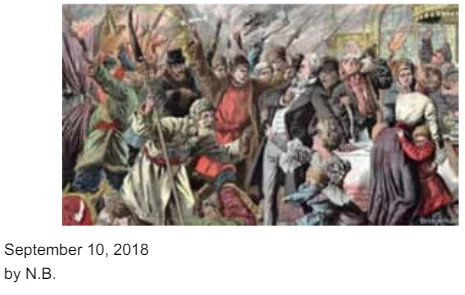Disciplina: Inglês 0 Curtidas
The text intends to a) show that economic inequality may be - FGV 2019
How to fix inequality

Introduction
In an age of widening inequality, the Stanford professor Walter Scheidel believes he has cracked the code on how to overcome it in his book “The Great Leveler”. The Economist’s Open Future initiative asked Mr Scheidel to reply to a number of questions.
1. The Economist: Is society incapable of tackling income inequality peacefully?
Walter Scheidel: No, but history shows that there are limits. There is a big difference between maintaining existing arrangements that successfully check inequality — Scandinavia is a good example — and significantly reducing it. The latter requires real change and that is always much harder to do: think of America or Britain, not to mention Brazil, China or India. The modern welfare state does a reasonably good job of compensating for inequality before taxes and transfers. However, for more substantial levelling to occur, the established order needs to be shaken up: the greater the shock to the system, the easier it becomes to reduce privilege at the top.
2. The Economist: Are we really living in an implacable period of wealth inequality — or was the relatively equal society that followed the Second World War the real aberration?
Walter Scheidel: When we view history over the long run, we can see that this experience was certainly a novelty. We now know that modernisation as such does not reliably reduce inequality. Many things had to come together to make this happen, such as very high income and estate taxes, strong labour unions, and intrusive regulations and controls. Since the 1980s, liberalisation and globalisation have allowed inequality to rise again. Even so, wealth concentration in Europe is nowhere near as high as it was a century ago. Like Europe, America, meanwhile, is getting there — which shows that it all depends on where you look.
3. The Economist: How do artificial intelligence and automation fit in to your thinking? Will they be a calamity for employment and thus for equality? Or might they unleash extraordinary productivity and improvements in living standards that actually narrow inequality?
Walter Scheidel: Ideally, we would like education to keep up with technological change to make sure workers have the skills they need to face this challenge. But in practice, there will always be losers, and even basic-income schemes can take us only so far. At the end of the day, someone owns the robots. As long as the capitalist world system is in place, it is hard to see how even huge productivity gains from greater automation would benefit society evenly instead of funnelling even more income and wealth to those who are in the best position to pocket these gains.
(The Economist. http://bit.do/eysic. Adaptado)
The text intends to
-
show that economic inequality may be tackled based on previous historical experiences.
-
praise the Stanford professor Walter Scheidel as well as advertise his newly released book.
-
demonstrate that it is impossible to reduce income differences in most socialist countries.
-
discuss and provide insights to overcome economic inequality in the modern world.
-
defend a fair tax system in order to avoid privileges and excessive rights.
Solução
Alternativa Correta: D) discuss and provide insights to overcome economic inequality in the modern world.
O texto pretende discutir e fornecer insights para superar a desigualdade econômica no mundo moderno.
No texto: “In an age of widening inequality, the Stanford professor Walter Scheidel believes he has cracked the code on how to overcome it in his book “The Great Leveler”.”
Resolução adaptada de: Curso Objetivo
Institução: FGV
Ano da Prova: 2019
Assuntos: Interpretação Textual em Inglês
Vídeo Sugerido: YouTube